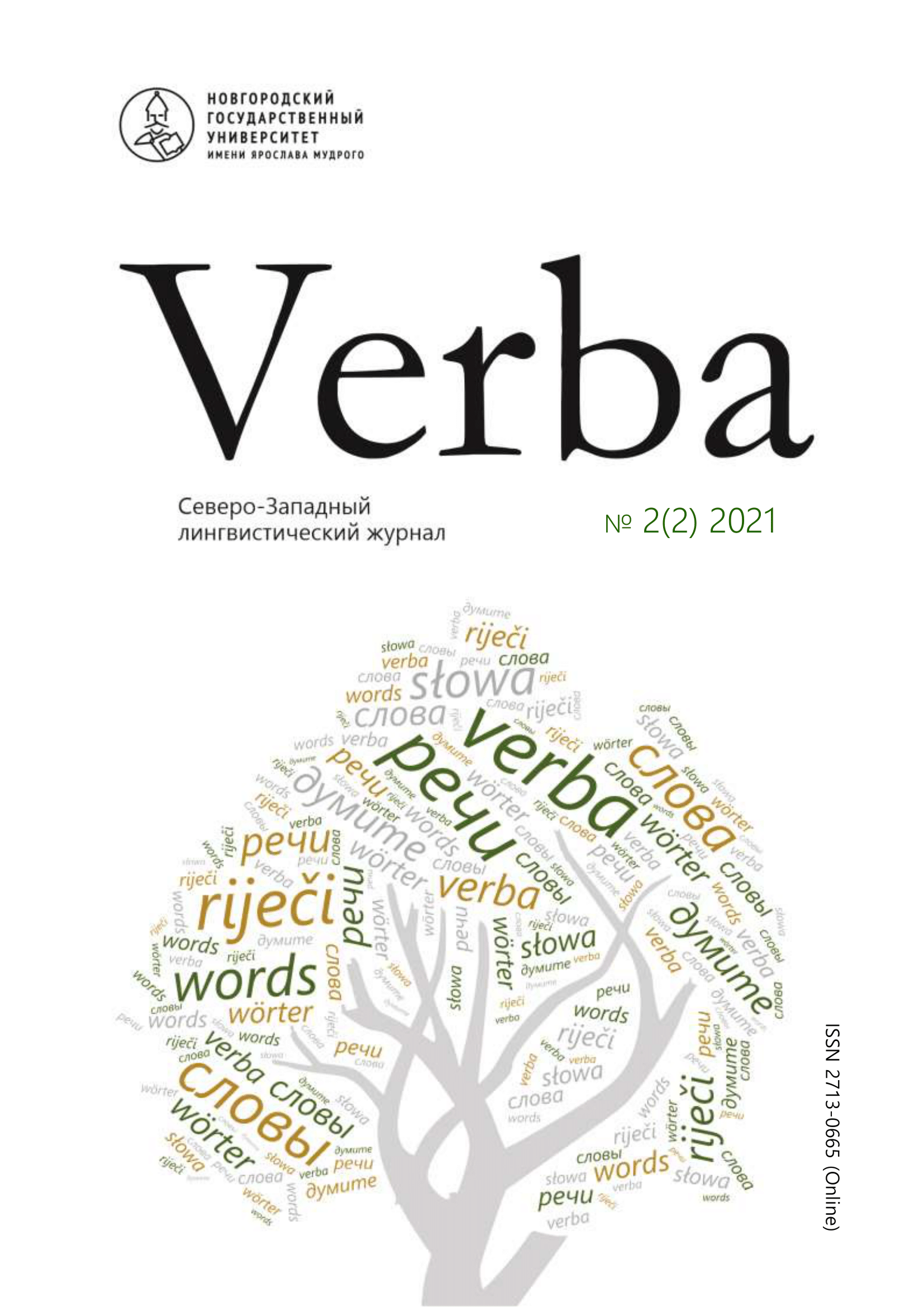Stable Verbal Complexes in the Political Journalism of the Soviet Period
DOI:
https://doi.org/10.34680/VERBA-2021-2(2)-46-55Keywords:
stable verbal complexes, phraseological unit, journalism, cliche, related meaningAbstract
The article is devoted to one of the types of non–free word combinations – stable verbal complexes. The text of the famous Soviet journalist A.E. Bovin’s memoirs, including archival documents.. The content scope of the term given within the “broad” and “narrow” understanding of the phraseology object is analyzed. A “narrow” interpretation of the term is taken as a basis, according to which stable verbal complexes include nonidiomatic stable combinations that perform a nominative function and are reproduced in texts of a certain combination style. Two groups of these combinations are considered, differing by the phrase formation mechanism: stable verbal complexes containing a component in a lexically related meaning and stable combinations, the “unfreedom” of which is due to the usual-stylistic factors – attachment to texts of a certain style / genre. The specific features of each of the selected groups associated with the ability to express emotional and evaluative content and the nature of stylistic markedness are revealed. The dependence of the emotional and evaluative content of stable combinations on the presence of a component with a related value in their composition is shown. The structural and semantic and functional features of stable combinations containing a component in a related meaning and having usual combinational restrictions are described. The culturological significance of the stable combinations corpus reflecting the evaluation system, stereotypes, images relevant to the political journalism of the Soviet period is shown. The main functions of non-idiomatic stable combinations in journalistic texts are highlighted: nominative, expressive and style-forming. Such signs of cliché-sovietisms as euphemism, use as a means of manipulation and ideological influence, categoricity of the expressed emotional and evaluative content are analyzed.
Downloads
Downloads
Published
How to Cite
Issue
Section
License
Copyright (c) 2021 Verba

This work is licensed under a Creative Commons Attribution-NonCommercial 4.0 International License.








